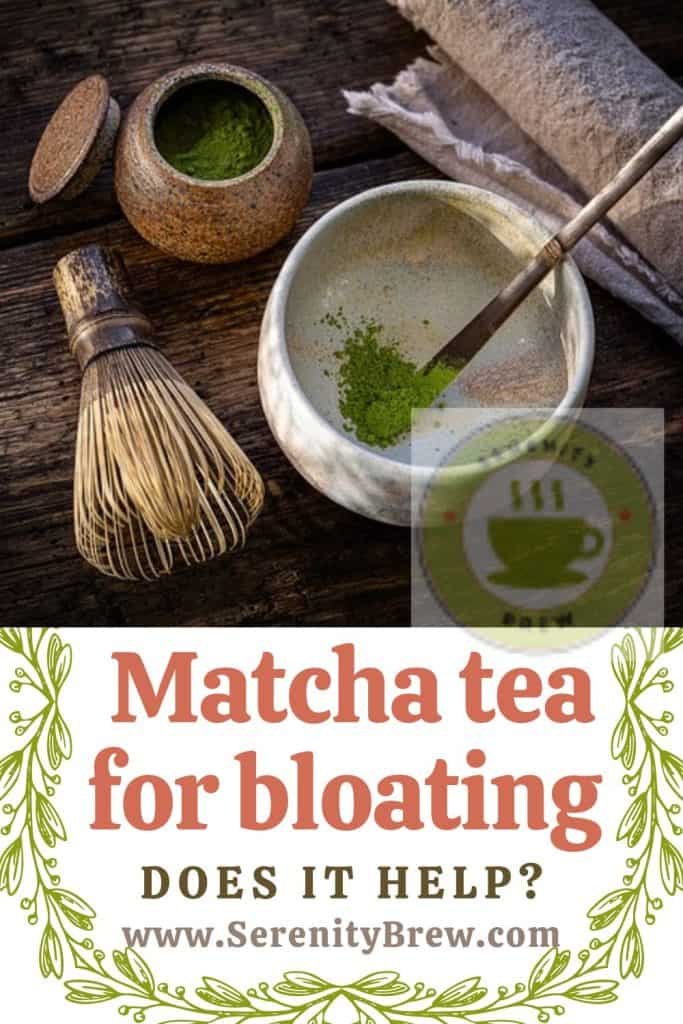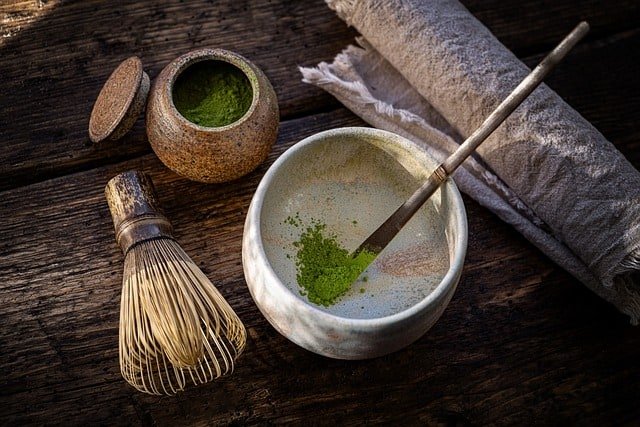
Matcha tea has grown in popularity around the world for its countless medicinal and healing properties. This green powder is the result of pulverizing its leaves, multiplying, in this way, 10 times the usual benefits of green tea. In this post we will talk about matcha tea for swelling , does it help?
Due to its high amino acid content, matcha tea is a good remedy to combat bloating in the abdomen. It frequently occurs during the summer, when the blood vessels dilate due to the increase in temperatures. It is appropriate, when this occurs, to consume plenty of water and foods with a lot of fiber.
What is matcha and what is it for?
You’ve probably already heard about it. matcha tea for bloating, is a type of green tea that originates from China, although many people associate it with Japanese culture. However, it was in China, during the Song dynasty, that this tea began to be drunk. This is what is known today as Zen Buddhism which uses meditation to relax and keep an open mind.
Many Japanese traveled to China to study this type of Buddhism, on their return they brought part of that culture, including drinking matcha tea. Over time it became an important part of the Japanese tea ceremony called Chanoyu.
The matcha tea is very different from other teas, while these are presented in strands (loose leaves), matcha comes in a very fine powder, that is, its leaves have been ground. To drink it, it is necessary to mix it with water in order to make the most of its benefits. Being powdered, its healthy compounds are much more concentrated in the cup, more than the strands.
What benefits does matcha tea have?
The benefits of matcha tea for bloating isn’t just about physical health. You will notice, for example, how your memory, your mood and concentration improve. Let’s see what those benefits are.
- It is a natural fat burner. Accelerates metabolism due to its EGCG content, burns fat faster. It also reduces the feeling of hunger and an important caloric intake is appreciated.
- Rich in antioxidants. These chemical compounds protect us against free radicals, which cause aging and chronic diseases. One of its most important components that make it rich in antioxidants are catechins.
- Improves concentration and memory. By having the presence of L-Theanine (an amino acid that crosses the blood-brain barrier) it increases the levels of dopamine and serotonin (important substances for the brain) that favor memory and concentration, as well as a good mood.
- Detoxifies and drains. The way matcha is cultivated, in which the plants are covered for 15 to 20 days before harvesting, chlorophyll levels are kept high. Chlorophyll has a high draining effect due to the detoxifying agents in chlorophyll. All this gives the ability to matcha tea to remove harmful substances from the body.
- Increased energy. Due to its high caffeine content, matcha tea helps combat physical and mental exhaustion. The caffeine in matcha is different from that in coffee, it is released slowly, so its relaxation effects are longer and do not raise cortisol levels as coffee does.
- Reduces the risks of heart problems. Studies indicate that people who drink tea regularly are 31% less likely to suffer from heart and artery problems.
What contraindications does matcha tea have?
As usually happens when consuming any food in excess, drinking too much matcha can cause some symptoms, especially in those who start consuming it. In this sense, it must be started without overdoing it and verifying how the body itself reacts.
Among the negative effects are digestive problems, due to the natural antioxidants it has, especially tannins, which are also found in coffee and red wine. These are polyphenols that give it that characteristic flavor and provide health benefits. In addition, they are responsible for neutralizing free radicals.
However, these tannins cause an increase in acidity that joins those produced by the stomach. In this sense, the effects that they usually generate are a bitter aftertaste, and in the worst case acidity, gastric reflux, vomiting and nausea. In the case of green teas (including matcha tea for bloating ) it is advised to drink them on a full stomach. If you are starting your day, replace it with black tea and greens for when you have food in your stomach. Also, you can drink it after breakfast.
Another drawback when drinking matcha tea in excess is diarrhea, which affects those people who are not yet used to this type of drink. Among the properties that this Japanese tea has, is its ability to inhibit the absorption of fat, which leads to weight control and maintaining blood sugar levels.
However, this has its contraindications, if the fat cannot be eliminated, the body must somehow do so. When the fat is not absorbed, it reaches the feces, they become too soft and cause diarrhea.
How should matcha tea be taken to lose weight?

Green teas are the most consumed drinks to lose weight, the reason is due to their content of catechins and antioxidants that are capable of increasing the body’s caloric expenditure. A study carried out in 1999 by The American Journal of Clinical Nutrition, says that green teas have thermogenic properties, thus facilitating the oxidation of fats.
Because matcha tea for bloating is made from the same plant, studies have shown that certain catechins are higher than in other types of green tea. In this sense, its effects on weight loss should also be applied to this type of tea. Do not think that just by drinking matcha tea you will be able to lose all the kilos, you must accompany it with a healthy diet and do a lot of exercises.
